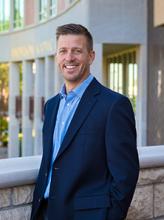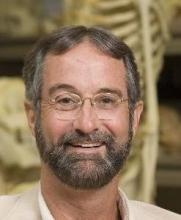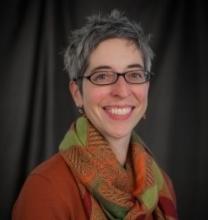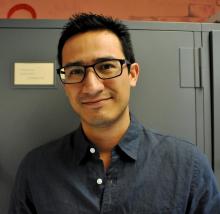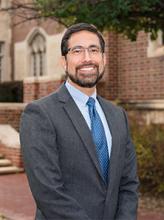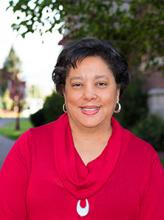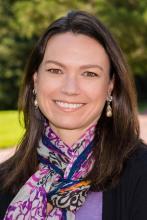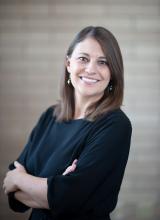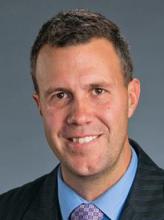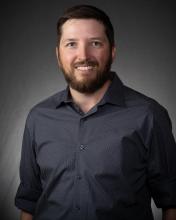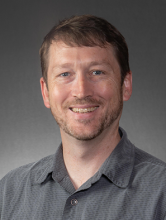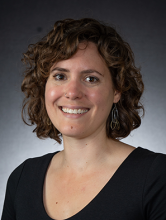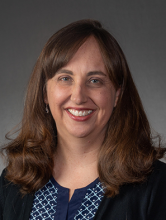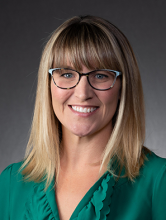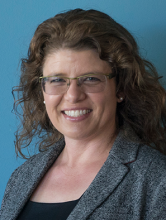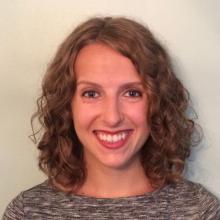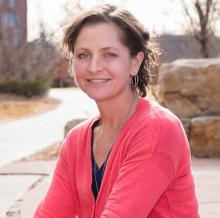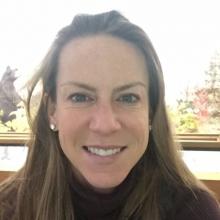Faculty and Staff Grants from September 2019
Congratulations to the following faculty and staff members who received grants and awards in September 2019
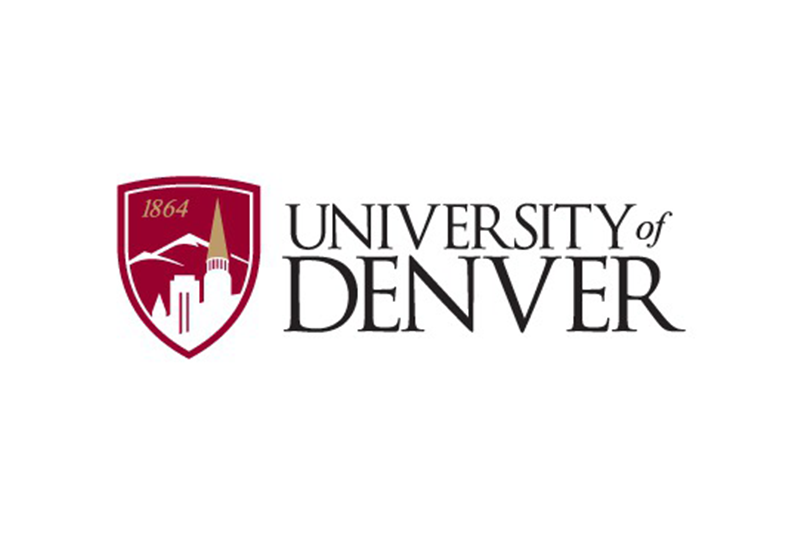
Marie Berry, assistant professor at the Josef Korbel School of International Studies, director of the Inclusive Global Leadership Initiative (IGLI) and public impact fellow
- Grant from the National Science Foundation for "The Women's Rights After War Project"
- Project abstract: In the wake of war, gender equality reforms have become part of a standard toolkit for recovery. These reforms are essential for advancing women's rights, and yet evidence suggests that these reforms have substantial limitations. The Women's Rights After War Project will advance our understanding of how to further advance women's rights and equality in the aftermath of war—vital prerequisites for security and democracy. To do so, we compare and evaluate women's rights interventions that followed war in 10 countries.
Daniel Brisson, professor at the Graduate School of Social Work and executive director of the Burnes Center on Poverty and Homelessness and public impact fellow
- Grant from Arapahoe County for "Assessment of Homeless Families"
- Project abstract: The Burnes Center will work in partnership with community stakeholders in the Tri-Cities region of Arapahoe County (Cities of Englewood, Littleton and Sheridan) to assess family homelessness. The Burnes Center team will conduct interviews with: local school district staff including McKinney-Vento liaisons, local service providers (food banks, churches, non-profit agencies, health care providers) as well as city staff to develop strategies to engage families in the study.
Lawrence Conyers, professor in the Department of Anthropology at the College of Arts, Humanities and Social Sciences
- Grant from History Colorado for "University of Denver Campus Archaeology Project"
- Project abstract: We propose to continue the campus archaeology project, which was piloted using internal funding in 2018-19. The proposal is to find, study and excavate a location on the University of Denver campus that is threatened by construction, and which is likely to contain buried historical materials and features. This will be done in the Archaeological Field Methods class, and have a significant community outreach project to include those interested in the history of Denver and archaeological methods.
Anne DePrince, chair of the Department of Psychology at the College of Arts, Humanities and Social Sciences; Julia Dmitrieva, associate professor in the Department of Psychology at the College of Arts, Humanities and Social Sciences; and Kimberly Gorgens, clinical research professor at the Graduate School of Professional Psychology
- Grant from the Colorado Department of Human Services for "Intimate Partner Abuse and Traumatic Brain Injury"
- Project abstract: This proposal addresses whether and how providers should use traumatic brain injury (TBI) screenings to inform decision-making with clients experiencing intimate partner abuse (IPA) by answering three key questions: 1. Which characteristics of TBI and/or IPA (recency, frequency, severity, onset) history predict health needs and service use two months later? 2. What emotional, cognitive and/or behavioral processes link TBI and/or IPA with later service use? 3. What TBI and cognitive screening items should be used in victim service settings to identify cases where additional attention to TBIs is warranted to improve health service use?
Esteban Gomez, assistant professor in the Department of Anthropology at the College of Arts, Humanities and Social Sciences
- Grant from RedLine Contemporary Art Center for "This is My Denver"
- Project abstract: "This is My Denver" will use metaphors, memories, statistics, imagery and storytelling to explore how neoliberal policies have created the current conditions for displacement and affordable housing shortage.
Esteban Gomez and Bonnie Clark, associate professor in the Department of Anthropology at the College of Arts, Humanities and Social Sciences
- Grant from the National Park Service for "Snapshot of Confinement"
- Project abstract: The proposed feature-length documentary film will tell people's stories of World War II confinement utilizing photo albums preserved in museum collections at former sites of confinement, Manzanar and Amache.
Lotta Granholm-Bentley, founding executive director at the Knoebel Institute for Healthy Aging
- Grant from Saint Joseph Hospital, Inc. for "Leased Employee Agreement"
- Project abstract: The Functional Neurosurgery Bioengineer has the primary responsibility for overall technology development, technical neurophysiological support and management of the functional neurosurgery services that includes the DBS Movement Disorders Program, Surgical Epilepsy Program, NeuroOncology Functional Cortical Mapping Program, and Functional MRI Program. There is an opportunity to participate in a multi-disciplinary research group with the University of Denver Departments of Engineering and Knoebel Institute for Healthy Aging.
Michele Hanna, associate professor; Erin Poole, project manager; and Michael Talamantes, clinical associate professor at the Graduate School of Social Work
- Grant from the Health Resources and Services Administration for "CLIMB-OWEP"
- Project abstract: The purpose of CLIMB-OWEP is to enhance community-based experiential training for concentration year MSW students preparing for work in behavioral health with an emphasis on Opioid Use Disorder and other Substance Abuse Disorders.
Suzanne Kerns, research associate professor at the Graduate School of Social Work and executive director of the Center for Effective Interventions
- Grant from the Southern Colorado Action Agency, Inc. for "Southern Colorado Action Agency Annual Training and Support Contract"
- Project abstract: GSSW's Center for Effective Interventions will provide Multi-Systemic Therapy (MST) clinical support and training. This will include MST telephone consultation for two MST clinical teams, consultations, up to four booster training sessions in each year of operation and all required booster training materials and manuals.
- Grant from University of New Mexico Hospitals
Erich Kushner, assistant professor in the Department of Biological Sciences at the College of Natural Sciences and Mathematics
- Grant from the National Institutes of Health for "Mechanisms of Basement Membrane Regulation During Angiogenesis"
- Project abstract: Missteps in a crucial process involving the body's protein network called the vascular "basement membrane" are associated with elevated incidence of stroke and aneurysm, as well as a life-threatening heritable form of intracerebral hemorrhage. To date, the biomedical community knows extraordinarily little about how basement membrane proteins are regulated by the vascular endothelium during angiogenesis. An understanding of this basic biology would be an important first step toward determining how disease states disrupt this process and manifest as life-threatening vascular disorders, as well as a significant advancement of our understanding of the angiogenic process as a whole.
Julia Macdonald, assistant professor at the Josef Korbel School of International Studies
- Grant from the University of Minnesota, subaward from the U.S. Department of Air Force for "Understanding the Escalatory Dynamics of Nuclear Crises"
- Project abstract: How should policymakers think about nuclear crises? How likely is a nuclear escalation and what determines who prevails? As North Korea acquires increasingly sophisticated nuclear capabilities, and as U.S.-China and U.S.-Russia relationships become increasingly adversarial, these questions are of significant importance. Despite this importance, academic scholarship offers confusing and contradictory interpretations of nuclear crises. This project continues work already started by Pis Bell and Macdonald to develop a typology of nuclear crises that shows how they vary.
Justin Marceau, professor at the Sturm College of Law
- Grant from the Brooks Institute for Animal Rights Law & Policy, Inc. for "Brooks Animal Studies Academic Network (BASAN)"
- Project abstract: The purpose of the BASAN grant is to advance scholarly knowledge and academic opportunities in the field of animal studies, particularly as they relate to animal law and policy. The grant is intended to facilitate Marceau's research, travel and events in support of these goals. In particular, it is anticipated that Denver Law will host a large, international event in the fall of 2019 and it is expected that Marceau will travel and conduct research with the funds from the grant.
Brian Michel, assistant professor in the Department of Chemistry and Biochemistry at the College of Natural Sciences and Mathematics
- Grant from the National Institutes of Health for "R21-Tools for the Detection of Ethylene"
- Project abstract: While ethylene has long been known as an important plant hormone, it has recently been demonstrated to be produced in mammals as a result of oxidative stress that is hallmark of numerous diseases. Since ethylene can be a surrogate biomarker of oxidative stress, tools capable of detecting ethylene in cells will provide a means to detect this stress and study additional roles of ethylene that may exist in mammalian systems. The project seeks to dramatically increase the sensitivity of fluorescent ethylene-detecting technology.
Shannon Murphy, associate professor; Erica Larson, assistant professor; Patrick Martin, professor; Anna Sher, professor; and Robin Tinghitella, assistant professor in the Department of Biological Sciences at the Division of Natural Sciences and Mathematics
- Grant from the National Science Foundation for "RCN-UBE Incubator: Enhancing Undergraduate Biology Education"
- Project abstract: This project seeks to build a collaborative, interdisciplinary community of scholars dedicated to better training science students to be effective communicators of science to the general public. It will also disseminate teaching tools, articulate a research agenda and plan for objective evaluation of undergraduate science communication training programs.
Galena Rhoades, research associate professor in the Department of Psychology at the College of Arts, Humanities and Social Sciences; and Maggie O'Reilly Treter, graduate student research assistant
- Grant from the Administration for Children and Families for "Evaluating the Impact of Relationship Education on Postpartum Depression"
- Project abstract: This project seeks to expand the working knowledge of the associations between relationship quality and postpartum depression, use a rigorous research design to evaluate the effectiveness of relationship education for preventing postpartum depression (using an existing Healthy Marriage and Relationship Education (HMRE) program — Family Expectations), and expand our understanding of postpartum depression in fathers.
Joseph Russo, director of the National Law Enforcement and Corrections Technology Center
- Grant from the National Institute of Justice/Department of Justice, subaward from the Research Triangle Institute for "Criminal Justice Technology and Evaluation Consortium"
- Project abstract: One main pathway for drugs to enter an institution is the mailroom. Conspirators will mail drugs in various forms to inmates in hopes that they will go undetected and reach the intended recipient. Drug-infused mail can pose serious health risks to staff, especially those responsible for sifting through the large volumes of mail arriving at institutions each day. To combat this threat, many institutions are taking measures to protect mailroom staff. One novel approach diverts inmate mail to a location outside of the institution where it is digitized and returned electronically to the institution to be printed and distributed to the inmate. Working in conjunction with the Pennsylvania Department of Corrections, which has recently implemented such a system, project staff will conduct an assessment of the viability of this approach.
Meredith Silverstein, senior research associate at the Butler Institute for Families at the Graduate School of Social Work
- Grant from the Mile High Council on Alcoholism and Drug Abuse, subaward from SAMHSA for "MAI - High Risk Populations"
- Project abstract: There is an urgent need to improve behavioral health and medical treatment to minority populations, including the homeless, with substance use and co-occurring mental health disorders who are at high risk for or living with HIV/AIDS. The Butler Institute will evaluate MHBH's implementation of a SAMHSA-funded project, "Minority Aids Initiative: Substance Use Disorder Treatment for Racial/Ethnic Minority Populations at High Risk for HIV/AIDS."
Andrea Stanton, associate professor and department chair in the Department of Religious Studies at the College of Arts, Humanities and Social Sciences
- Grant from the National Endowment for the Humanities for "Radio and Decolonization: Bringing Sound into 20th Century History"
- Project abstract: This project aims to support participants in studying the roles of sound in 20th century history, using radio broadcasting as a key case study, and in initiatives for incorporating sound and material evidence of sound into their pedagogy, through hosting a two-week NEH summer seminar, aimed at higher education faculty members, including graduate students and contract or contingent faculty. This seminar will be hosted at the University of Denver in Summer 2020 and will bring together three trained historians whose work focuses on sound and radio broadcasting.


